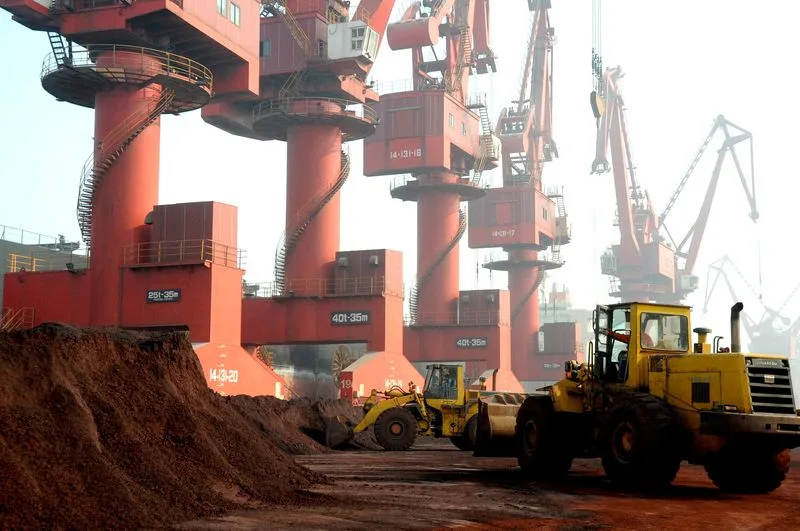China Claims U.S. Is Stoking Fear Over Rare Earth Export Rules, Signals Willingness to Talk
China Claims U.S. Is Stoking Fear Over Rare Earth Export Rules, Signals Willingness to Talk
By
Calder Monroe
Last updated:
October 17, 2025
First Published:
November 30, 2025

Photo: Yahoo News Malaysia
China has publicly pushed back against U.S. accusations that Beijing’s newly imposed export controls on rare earth minerals are destabilizing global markets. At a press briefing, the Ministry of Commerce accused Washington of deliberately misrepresenting China’s actions to sow “panic,” even as it affirmed that bilateral dialogue remains possible. The clash intensifies already fraught U.S.–China trade dynamics ahead of a planned bilateral meeting.
China Accuses U.S. of Manufacturing Panic
At a Thursday news event, spokesman He Yongqian of China’s Ministry of Commerce said U.S. commentary had “seriously distorted and exaggerated” the measures, deliberately fostering confusion and alarm. He asserted the narrative presented by Washington amplified misunderstandings about China’s intentions.
China maintains its rare earth export curbs are targeted, not sweeping bans. According to He, the restrictions are aligned with broader national security goals, especially around defense-related applications. He also cited prior U.S. restrictions on semiconductors and foreign content mandates as examples of Washington projecting its own approach onto Beijing.
U.S. Pushback: Strategic Leverage or Supply-chain Coercion?
U.S. Trade Representative Jamieson Greer characterized China’s move as an attempt to assert control over global tech supply chains. In an interview with CNBC, Greer warned that China’s actions would shape whether Washington triggers its retaliatory tariffs. Meanwhile, Treasury Secretary Scott Bessent suggested the U.S. might take equity stakes in rare earth firms, enforce price floors, and fortify a domestic supply chain to counter Beijing’s dominance.
Critics in the U.S. argue China’s near-monopoly in rare earth processing—and its abrupt imposition of controls—amounts to “economic coercion.” Some analysts note that Beijing is now requiring export licenses for goods containing even 0.1 % Chinese-origin rare earth elements or produced with technology tied to Chinese supply chains.
The U.S. administration has already made its move: In July, the Pentagon struck a deal with MP Materials, the largest U.S. rare earth miner, granting the government a preferred equity position and long-term purchase agreements—moves seen as foundational to reducing dependency on Beijing.
The Stakes: National Security, Tech, and Market Risk
Rare earth elements are integral to defense systems (such as F-35 jet turbines, missile guidance systems, and drone sensors) as well as civilian sectors like semiconductors, electric vehicles, renewable energy, and robotics.
China currently leads:
- ~70 % share in rare earth mining globally,
- ~90 % share in processing and separation,
- and dominates magnet manufacturing.
Under China’s new rules (to take effect December 1), even foreign-produced magnets and semiconductor materials incorporating trace Chinese rare earth inputs must secure export approval. Analysts argue this expands China’s unilateral leverage.
Yet, some observers caution the strategy may backfire. Heightened prices or overreach could accelerate rival investments in rare earth mining, recycling, and supply chains outside China, eventually eroding Beijing’s edge.
U.S. Strategy: Build Independence
Washington is doubling down on efforts to shore up domestic critical mineral capacity. In addition to its MP Materials investment, plans include:
- Setting price floors to prevent Chinese dumping and ensure profitability of U.S. producers
- Strategic stockpiling to buffer shocks
- Taking equity stakes in key firms in sectors tied to national security
- Forging partnerships with allies to diversify supply sources
Treasury Secretary Bessent said policymakers must use “industrial policy” when confronting a nonmarket economy like China. Asked whether more equity moves were coming, he replied, “I wouldn’t be surprised.”
Risks, Reactions, and What’s Next
Global markets have responded sharply. Shares of U.S.-listed rare earth firms—such as MP Materials and USA Rare Earth—jumped 20 % or more after China unveiled its controls. Some industry analysts now caution that valuations may be overheated in this volatile environment.
The International Monetary Fund and certain G7 finance ministers have flagged China’s move as alarming, warning that supply disruption could ripple across industries. In parallel, many nations are rethinking sourcing strategies for critical minerals.
Despite the tension, diplomatic channels remain open. U.S. officials continue to express a preference for resolving the dispute through negotiation rather than escalation. A high-level summit between Presidents Trump and Xi in South Korea later this month remains on the calendar, and both sides have expressed interest in dialogue.
In sum, Beijing’s rare earth strategy is both a pressure tactic and a signal of how far it is willing to use supply control in its trade arsenal. Whether it achieves leverage or accelerates global decoupling may depend on how countries act in response—and whether Washington can forge credible alternatives fast enough.
Popular articles
Subscribe to unlock premium content
Snow, Silence, and Splendor

The $60 Million Market for Ultra-Exclusive Executive Pop-Up Experiences

Conquering the Poles in Absolute Luxury

Snow, Silence, and Splendor

The $60 Million Market for Ultra-Exclusive Executive Pop-Up Experiences

Snow, Silence, and Splendor









